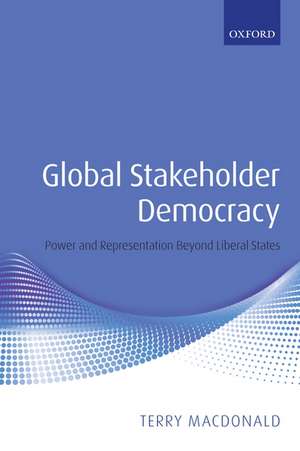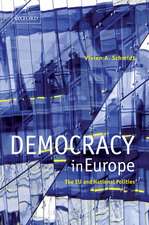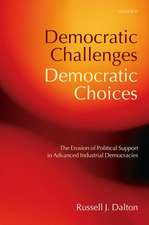Global Stakeholder Democracy: Power and Representation Beyond Liberal States
Autor Terry Macdonalden Limba Engleză Hardback – 7 aug 2008
Preț: 714.92 lei
Preț vechi: 1084.44 lei
-34% Nou
Puncte Express: 1072
Preț estimativ în valută:
136.80€ • 146.29$ • 114.06£
136.80€ • 146.29$ • 114.06£
Carte tipărită la comandă
Livrare economică 07-14 aprilie
Preluare comenzi: 021 569.72.76
Specificații
ISBN-13: 9780199235001
ISBN-10: 0199235007
Pagini: 248
Dimensiuni: 162 x 240 x 20 mm
Greutate: 0.5 kg
Ediția:Published.
Editura: OUP OXFORD
Colecția OUP Oxford
Locul publicării:Oxford, United Kingdom
ISBN-10: 0199235007
Pagini: 248
Dimensiuni: 162 x 240 x 20 mm
Greutate: 0.5 kg
Ediția:Published.
Editura: OUP OXFORD
Colecția OUP Oxford
Locul publicării:Oxford, United Kingdom
Recenzii
an impressive achievement which lifts the debate on global democracy to a new level ... a veritable treasure box full of original insights, sharp and sophisticated arguments ... This book should be studied by anyone interested in the democratisation of global governance and indeed in the future of democracy.
Notă biografică
Terry Macdonald was born and educated in Melbourne, Australia, before taking M.Phil and D.Phil degrees in International Relations from Oxford University (Nuffield College). She has previously held positions as a Research Fellow and Lecturer in Politics at Merton College, Oxford, and as a Research Fellow at the Australian National University (ANU), within the Centre for Applied Philosophy and Public Ethics (CAPPE). She is currently employed as a Lecturer in Global Politics at Monash University, Melbourne.














